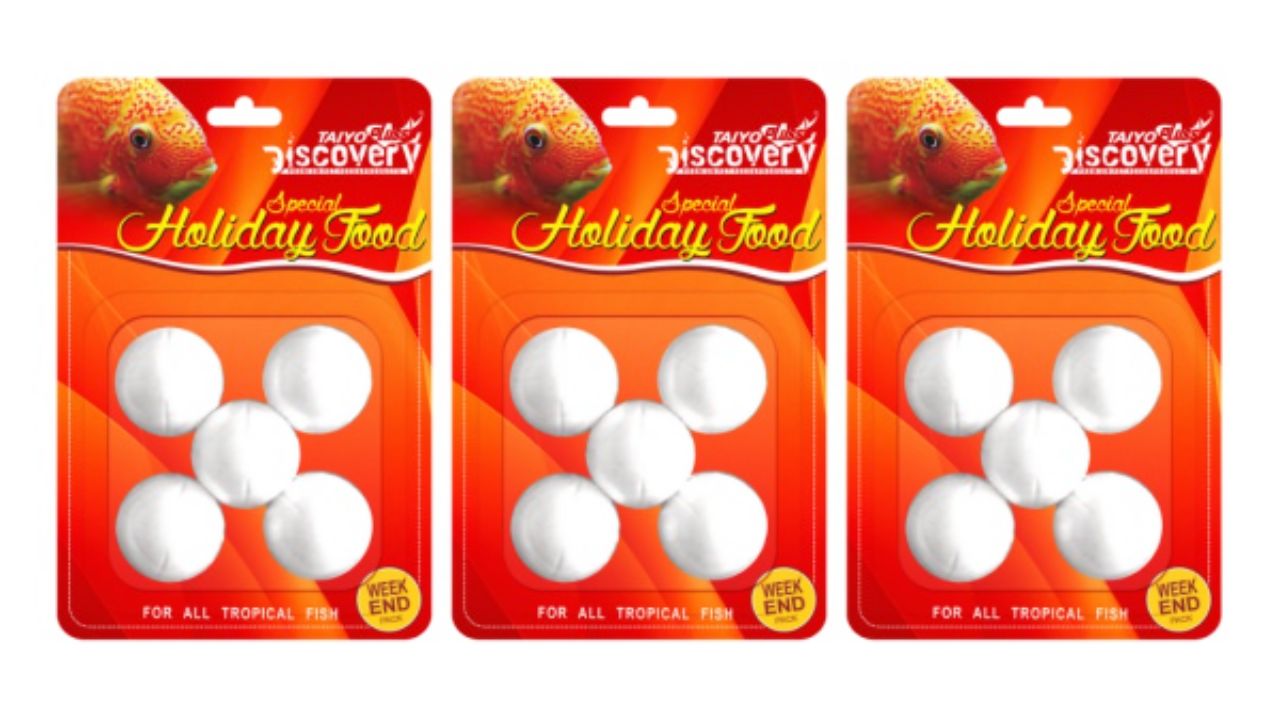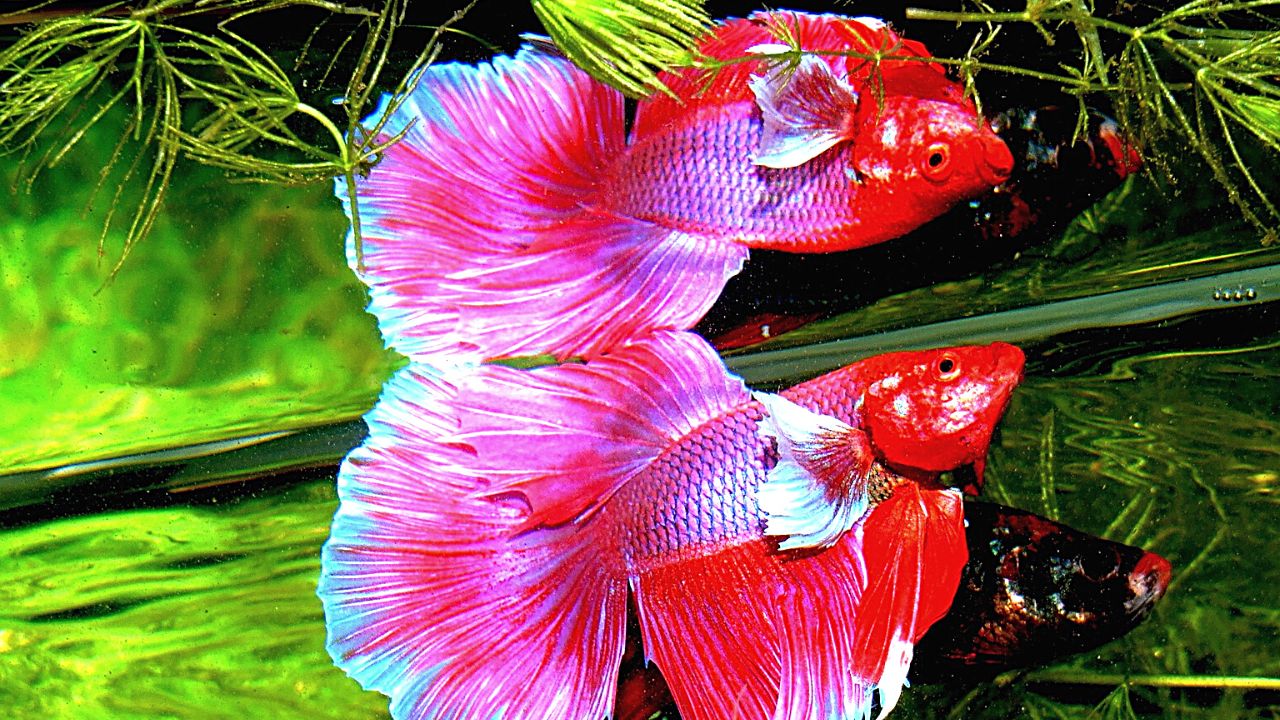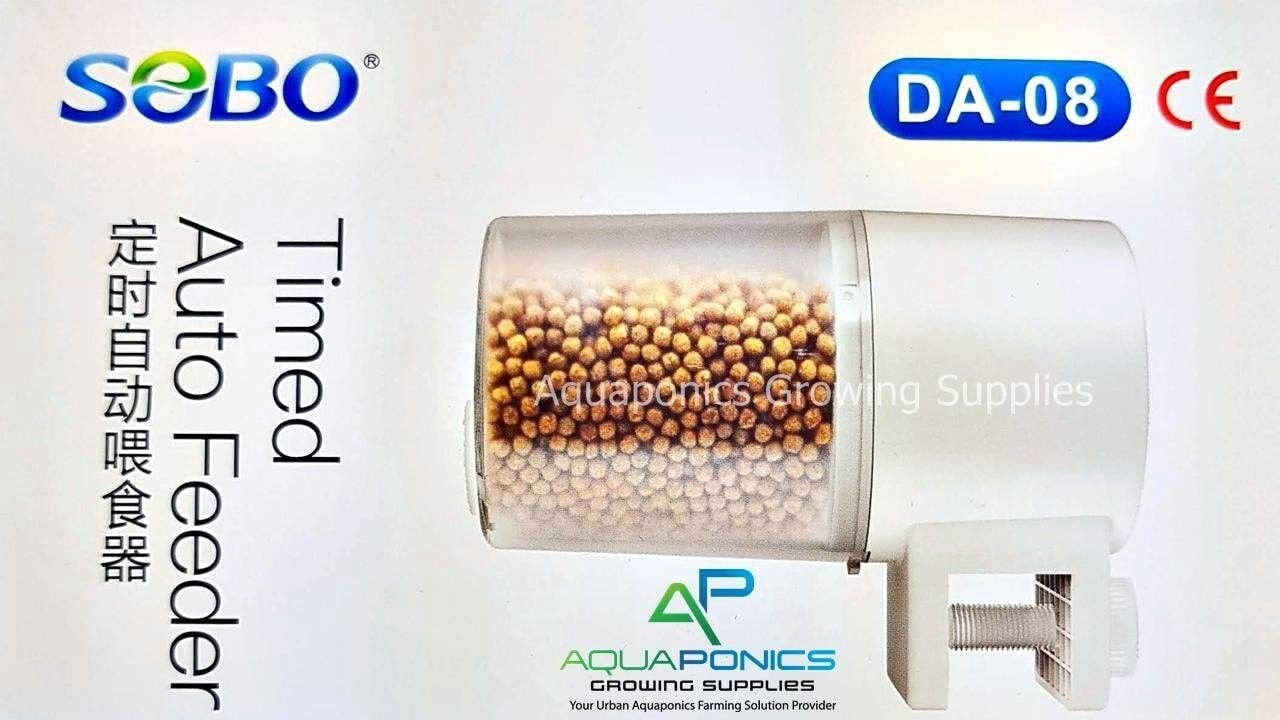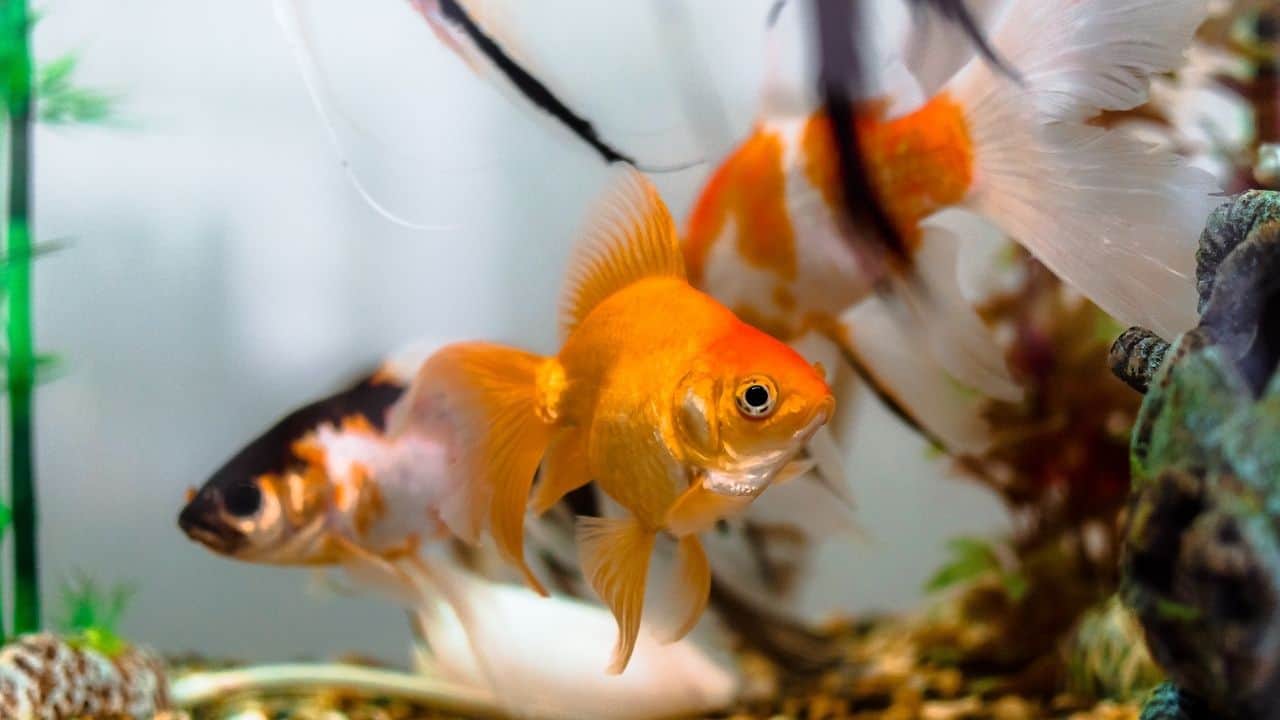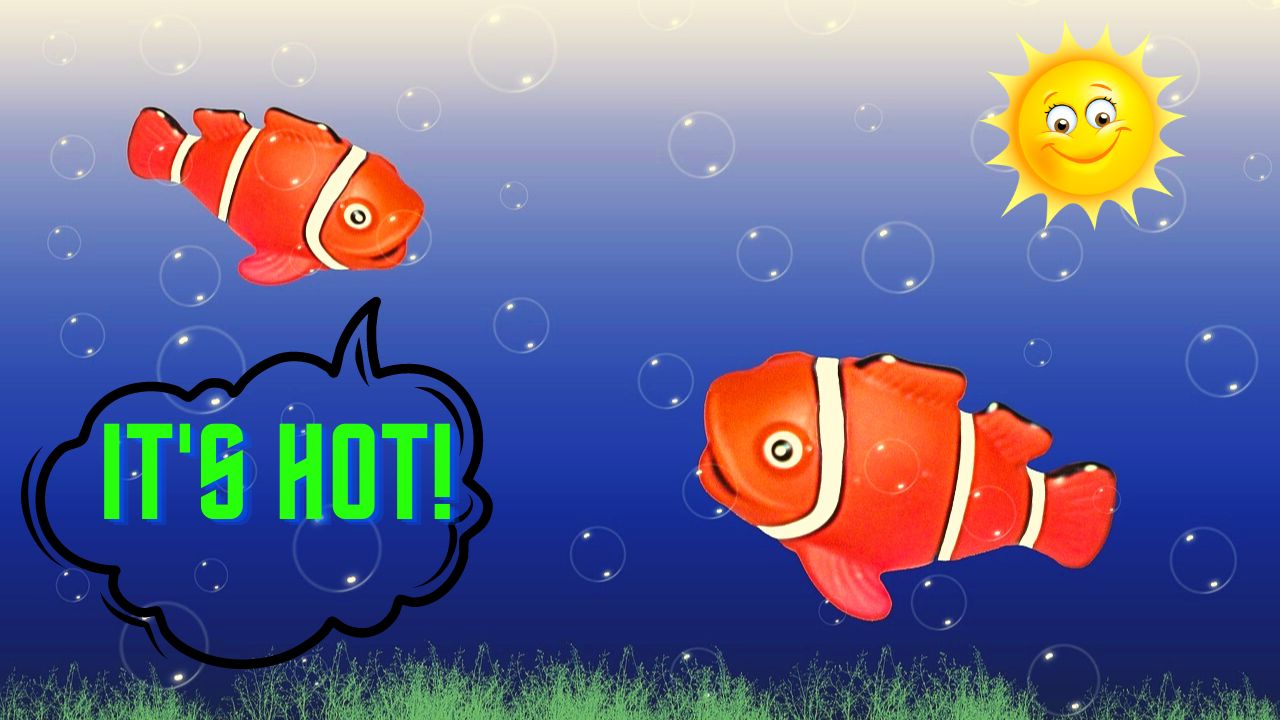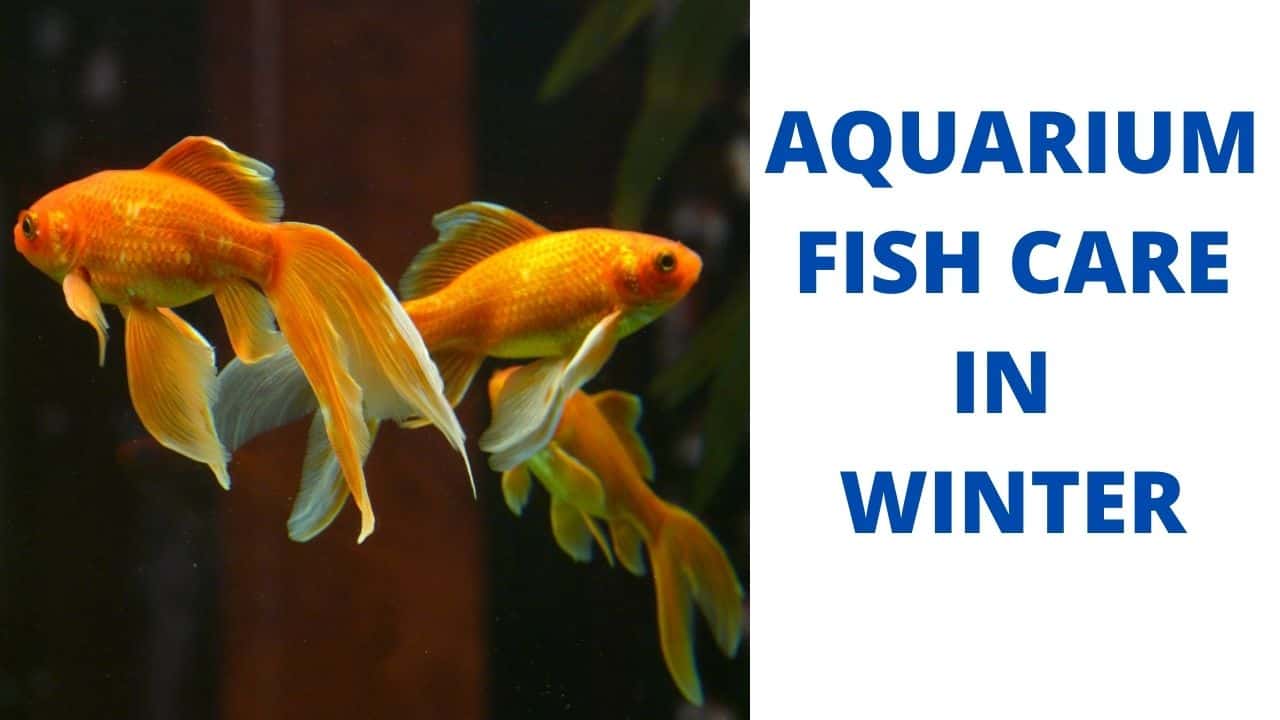
Table of Contents
Winter is a tough season for both fish and aquarium lovers. Being cold-blooded aquatic animals, fishes need special care during winter.
Fish tank maintenance in winter is critical for maintaining the good health of your aquarium fish as the colder temperatures approach. Fishes can become stressed during the winter months, leading to health problems.
Follow this simple guide to help your fish thrive when the temperature drops.
Going on vacation? Learn how to feed your aquarium fish during holidays.
You must buy these aquarium products to keep your fish healthy in winter
| Product | Details |
|---|---|
| Aquarium heater | Buy on Amazon |
| Thermometer for fish tanks | Buy on Amazon |
| Submersible Aquarium Water Pump | Buy on Amazon |
| Fish food | Buy on Amazon |
| Aquarium water cleaner | Buy on Amazon |
| Aquarium filter | Buy on Amazon |
Why are heaters a must for aquariums in winter?
Most mammals, including humans, are endothermic. This means that they can generate heat and warm up their body tissues through their metabolism. Thus, we classify them as “warm-blooded animals.”
Most fishes are ectotherms, just like reptiles and amphibians. So their bodies can’t produce heat. These “cold-blooded animals” use external sources to either heat up or cool down.
Aquarium winter care tips
Here are a few points to remember for the well-being of the fish in your aquarium.
Adequate temperature
Having a fish in an aquarium requires you to recreate the temperature of their natural habitat to enable their development. Thus, if you have a fish tank in winter in cold towns, you must have an efficient heating system.
It’s also essential to have a thermometer around as it’ll allow you to regulate and control the internal temperature of the fish tank. Fishes will be in trouble if the water is overheated.
What about the pump?
It is a good idea to turn off the water circulation pump of the fish tank during the winter, mainly when dealing with considerably different types of fish living in a large tank.
About the fish tank
- Getting a wide fish tank is an ideal choice.
- It would be best if you did not leave an aquarium outdoors in winter (also in summer). A ventilated environment with a good incidence of sunlight is preferable.
Balanced winter feeding
Most fishes tend to change their eating habits during winter. When there’s adequate heating, you must feed the fish 2 to 4 times a day – provided the temperature is above 12ºC. But, when you let the fish go into hibernation, you should only feed them once a day.
This practice respects the required food changes but requires a lot of care. They also require permanent control of the temperature of the fish tank throughout winter.
Is your fish tank ecosystem well balanced?
The best way to determine if the water in your fish tank is well balanced is to observe how the fish behave. They’re very sensitive and immediately show symptoms of inappropriate conditions.
When there’s a balance in the temperature inside an aquarium, the fishes continue their feeding and swimming routine. But if the water in the tank is too cold, the fish will adapt to their survival strategy. They’ll remain motionless at the bottom of the fish tank and won’t swim around.
You can tell by the same behaviour that they may not get enough food during winter.
You must double your fish care during the winter. Properly maintaining their tank is the best way to protect them.
Don’t Expose Your Aquarium to Outside Weather
Your aquarium is under a specific temperature always. But if you let your aquarium to exposed to outside weather, for example, you forgot to close the window near the aquarium at night, and your fishes were exposed to the chilly weather outside.
That’s not good!
Regularly monitor the temperature.
Use a thermometer meter to get a better reading. Keep your water around 24-28ºC. Don’t go too cold or too hot unnecessarily.
In short, keep the temperature comfortable.
Make sure the heater is enough for your tank
Often, people buy an aquarium for the first time without gaining any prior knowledge about it. They sometimes buy a small heater for a large tank. A heater that can never cover the entire tank.
So, make sure your heater matches your tank.
Keep the Water Clean
Make sure your water is clean. Buy a quality testing kit, use it, and ensure your water is acceptable. Check your filters are working perfectly and no fungus or third-party stuff is inside the tank.
Avoid Changing the Whole Water
During the winter season, please avoid changing the whole water inside the tank.
Be cautious while changing the water, and try to change less than half of the water inside the tank. In winter, the fishes are more vulnerable to disease.
Adjusting the Lighting
During winter, daylight hours are shorter, and natural light is weaker. This can affect the lighting in your aquarium and your fish’s health. To adjust the lighting in your aquarium, you can:
• Use a timer to maintain a consistent lighting schedule. • Reduce lighting to 6-8 hours daily to avoid excessive algae growth. • Use LED lights to create a warm and natural lighting effect. • Avoid placing the aquarium near a window or in direct sunlight.
Adding Air Pumps and Filters
Air pumps and filters are crucial for maintaining the aquarium’s water quality and oxygen level. During winter, air pumps and filters become even more critical to the well-being of your fish. You can consider the following tips:
• Use a high-quality air pump and filter to maintain water flow and oxygen level. • Clean the filter regularly to prevent clogging and maintain water quality. • Use a sponge filter to avoid excessive water flow and agitation.
Keep a Close Eye on Your Fishes
We are not saying you should monitor your fish 24/7, but in winter, the fishes tend to stress out with sudden temperature changes. And if that happens, they might suffer from the common fungal disease and white spot. Keep an eye on those. If your fish catch any of that, feed them proper medication.
Feed Healthy
Like you eat a good diet. Your fish should have one too. Feed them healthy, and feed them nutritious meals. You can try frozen food to fill in the vitamins.
Try Not to Overfeed
Yeah, overeating is harmful to them, also.
A sudden change in diet might affect them. That’s why avoid overfeeding them and feed them around 1 time every day.
If the Fishes are Sick
Please treat them with antibiotics. Better to consult a vet first on this matter. You don’t want to kill them, do you?
You might worry about your fish in winter more than usual. We get it. But with proper instruction and steps, you can care for your fish and give them a healthy and fun life even in winter.
How do I maintain a stable winter water temperature for my aquarium fish?
Investing in a high-quality aquarium heater and thermostat is essential to maintain a consistent water temperature. You can also insulate the tank with a heater cover or use a tank blanket to prevent heat loss.
Do I need to change the feeding schedule for my aquarium fish during the winter?
You may need to adjust your feeding schedule based on the activity level of your fish. In the winter, fish may be less active and require less food. Be sure to monitor their feeding and adjust the amount accordingly.
How can I prevent the water in my aquarium from getting too cold?
If the temperature in your home drops significantly in the winter, you may need to use a higher-wattage heater or add a heater to your aquarium. You can also add a thermometer to your tank to monitor the water temperature closely.
Do I need to adjust the lighting in my aquarium during the winter?
If the days are shorter in the winter, you may need to adjust the lighting in your aquarium to ensure your fish are getting enough light. Aim for 8-10 hours of light daily, and consider using a timer to ensure consistent lighting.
How do I prevent the water in my aquarium from getting too dry in the winter?
If you use a humidifier to combat dry air in your home during the winter, place it away from your aquarium to prevent excess moisture from building up on the glass.


